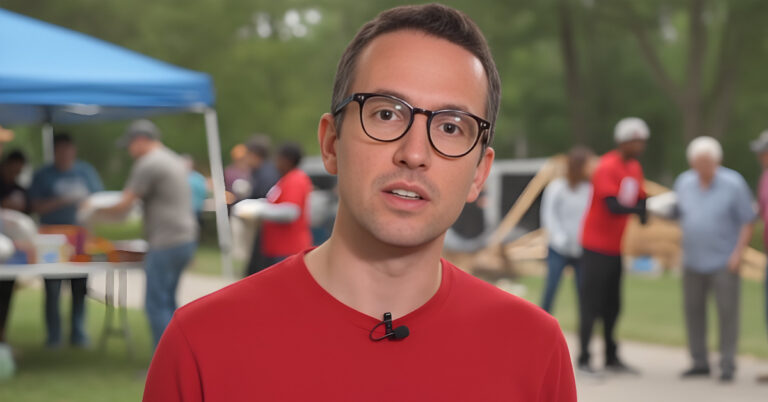Hugo Bachega has become a familiar face to millions who watch international news. His calm way of speaking and clear reporting style often capture attention. Yet, beyond the news he delivers, many viewers find themselves curious about something more personal — the Hugo Bachega accent. People notice how his words sound slightly different from standard British or American English. Particularly among those who follow his live coverage on global events, this accent has raised several questions. Knowing his vocal style not only fulfills inquisitiveness but also demonstrates how one’s communication can be molded by language, culture, and profession.
Who Is Hugo Bachega?
At present, Hugo Bachega is a well-known BBC News writer. Originally educated and born in Brazil, his career started there. He first worked as an intern with Reuters in São Paulo before going on to cover globally. He has written from Eastern Europe and the Middle East among other places throughout the years.
Hugo Bachega documented significant global events under trying circumstances during these assignments. His professional path is distinguished by bravery, commitment, and a distinctive voice that enables others to comprehend challenging narratives. Hugo Bachega accent becomes even more notable because of his past. His voice naturally picked up elements from both Brazil and the United Kingdom as he changed between them.
What Sets the Hugo Bachega Accent Distinctively?
The Hugo Bachega accent defies categorization. While it has echoes of Brazilian Portuguese, it also mixes well with elements of British English. This combination lends his statements a special cadence that listeners frequently pick up on television.
Where someone grew up, received training, or worked is sometimes revealed by their accent. Hugo Bachega’s global career has given layers to his voice. At the BBC, listeners might hear Brazilian sounds toned down by years of daily English. The outcome is an accent that is challenging to categorize but simple to recall.
Cultural and linguistic effects
Living in Brazil helped Hugo develop his first speech patterns. Portuguese’s tone pattern differs from that of English. The accent starts to change when someone comes into an English-speaking setting, particularly professional media. Hugo Bachega’s voice captures this change.. It is clear enough for international viewers but still holds subtle hints of his roots.

Why People Search for the Hugo Bachega Accent
Many viewers type “Hugo Bachega accent” into search engines out of curiosity. This is not unusual, since accents naturally raise questions about background and identity. For a global journalist like Hugo, appearing frequently on television increases that interest.
People ask what accent he has, is he Brazilian or British, why does his voice sound different to other journalists. This interest shows how highly audiences value accents in public communication. It also illustrates how a journalist’s voice might contribute to their individual brand.
Career and Accent Connection
Clear language is vital for journalists. The way a narrative is spoken influences its audience’s degree of comprehension. His reporting gains a layer of originality from the Hugo Bachega accent. It distinguishes him among coworkers while still being simple to follow.
Benefits of a Unique Accent
Having a unique accent can produce recognition. Viewers sometimes remember the voice, even if they forget the journalist’s name. Being both international and professional, Hugo’s accent helps him to have this benefit. It conveys control and is still approachable.
Accent Problems in Journalistic Writing
Still, accents present problems. Some viewers might struggle more to get used to speech patterns they are not familiar with. Hugo Bachega, nevertheless, manages this admirably. His consistent, precise delivery guarantees that everyone receives the message.
Method of Communication and Voice Style
Beyond the accent itself, Hugo Bachega has a unique communication style. His voice carries calmness even when reporting from tense environments. This voice style supports trust in his words and helps viewers focus on the facts.
Tone and Credibility
Hugo speaks professionally but not distantly. He maintains listeners captivated by alternating gravity with warmth. In journalism, tone either establishes credibility or ruins it. The Hugo Bachega accent combined with his steady tone makes him both trustworthy and memorable.
Delivery and Clarity
Another element of his style is clarity. He avoids rushing through reports, even in breaking news situations. Each word is carefully shaped. This technique guarantees that viewers all over the world, many of whom speak English as a second language, can grasp him.
Importance of cultural accent in media
Accents help to define origin as well as other characteristics of a person. They stand for diversity in worldwide media. The presence of media outlets with different accents demonstrates to viewers that the world of news is not restricted to one culture or voice.
One example of this variety is Hugo Bachega accent. It reminds viewers that perspectives from several backgrounds underlie international news. His appearance on screen represents how journalism brings people together worldwide.

Accent as Identity Marker
Every accent carries identity. For Hugo, his accent is a marker of his journey from Brazil to the BBC. It reflects his multicultural path and professional growth. Audiences hear in his speech not just English words but the story of adaptation and success.
Misconceptions About Hugo Bachega Accent
With growing curiosity, some misconceptions have also appeared. A common one is that Hugo is fully British. Some people think his voice is American. Actually, it is a mixture molded by years spent working in the UK and Brazilian roots.
Clear Background: The Truth
Hugo Bachega hails from Brazil. Though his background shows, his work in English-language media changes his accent. Understanding this clarifies uncertainty and reveals the natural evolution of accent.
Separating Facts from Speculation
Speculation often arises because people want to place accents into neat categories. But the truth is that accents evolve. The Hugo Bachega accent is not fixed in one box. It is a living example of how global careers influence the way we speak.
The Lasting Impact of His Communication Style
The Hugo Bachega accent explained with insights on his voice style shows more than how he sounds. It shows in journalism how language, culture, and profession interact. His voice tells a story of professionalism, flexibility and commitment.
The reason people do not forget his accent is not only due to its peculiarity but also because it is a strong indication of a credible source of news. His composed approach in trying times gives audiences an informed and supported feeling. This enduring effect demonstrates that an accent can signify credibility rather than just sound.
Conclusion
The curiosity around the Hugo Bachega accent is understandable. His voice is recognizable on international television and people are interested to know more. Through his background, influences and style, it is evident that his accent is part of himself. It incorporates Brazilian origins and the transparent sound of British English culminating in his journey.
The accent and the voice type of Hugo Bachega are very important in the world of journalism where trust and clarity are vital. They do not only inform audiences, but also relate them to a larger world of diversity. His narrative demonstrates the development of language through experience and that there is one voice which can be both cultural and professional.

